Stories of Resilience: A Second Chance
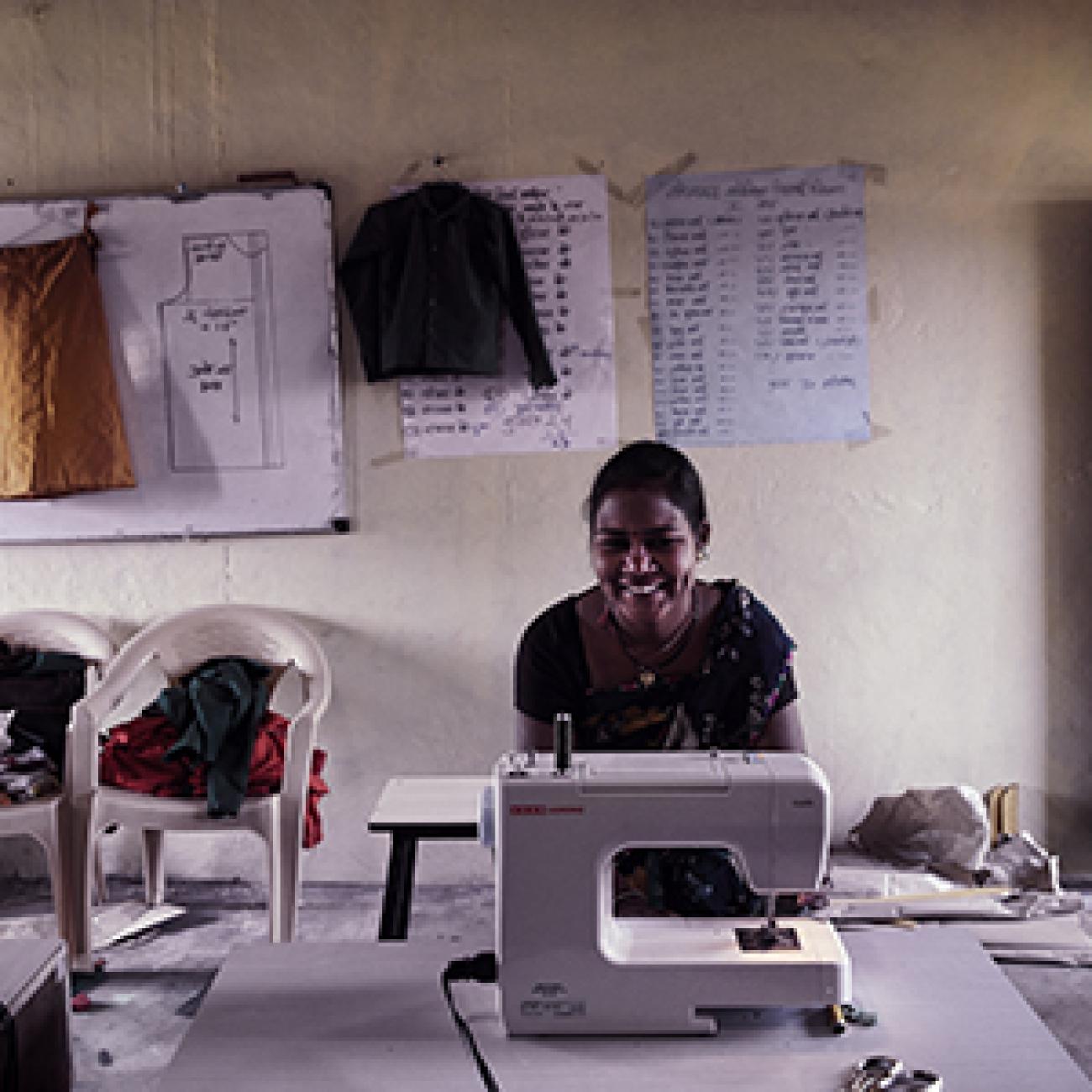
Since the outbreak more than five months ago, and the global lockdown over three months ago, the COVID-19 virus has taught us several lessons.
Since the outbreak more than five months ago, and the global lockdown over three months ago, the COVID-19 virus has taught us several lessons, the largest amongst those is realising our own vulnerabilities. Economies are crashing, there is major financial insecurity, countries are becoming increasingly conservative and hostile, and vulnerable populations worldwide are facing the brunt of the pandemic. With each passing day, the humanitarian crisis of millions living impoverished and vulnerable lives across the world increases. However, the pandemic can prove to be an immense opportunity for women and girls. It is an opportunity to balance the scales- an opportunity to overhaul the existing system and to allow for a better, brighter, and most importantly, a more equitable future. The first step that we need to take, to achieve that goal is to let the vulnerable communities speak for themselves - about their problems, their challenges, and their aspirations.
In India, 3 out of 4 women over the age of 15 are neither working nor seeking work. Female Literacy Rate in India is 22%, lower than the rest of the world. In 2018, UN Women initiated the development of a Second Chance Education and Vocational Learning (SCE) programme that would provide marginalized women who have lost out on an education with pathways to employment through a tailored learn-to-earn approach. Despite the increasing investments in access to quality education and specifically girls’ education, half a billion women are still illiterate[1] worldwide. Grassroots efforts like that of the Second Chance Education Programme (SCE) are critical in addressing the problem on a granular level. In a short amount of time, the team has embarked the journey towards a better tomorrow for our women. The following are accounts of women, trained under SCE, who have come out to be an inspiration for other women and young girls to dream, achieve and to realise their full potential.
“I had stopped considering schooling to be an option, but now that I’m pursuing education again, I’m building socio-political opinions and believe Gender-Sensitive Education is important for women rights” – Khusbu Kumari, Gaya- Bihar
Khusbu Kumari hails from Dohari village, part of the Manpur Block in Gaya district of Bihar. She is eighteen years old. Like many girls of her age, she has not been attending school for the past couple of years. The financial burden of education, coupled with the lack of awareness and conservativism against educating women, have kept her out of school.
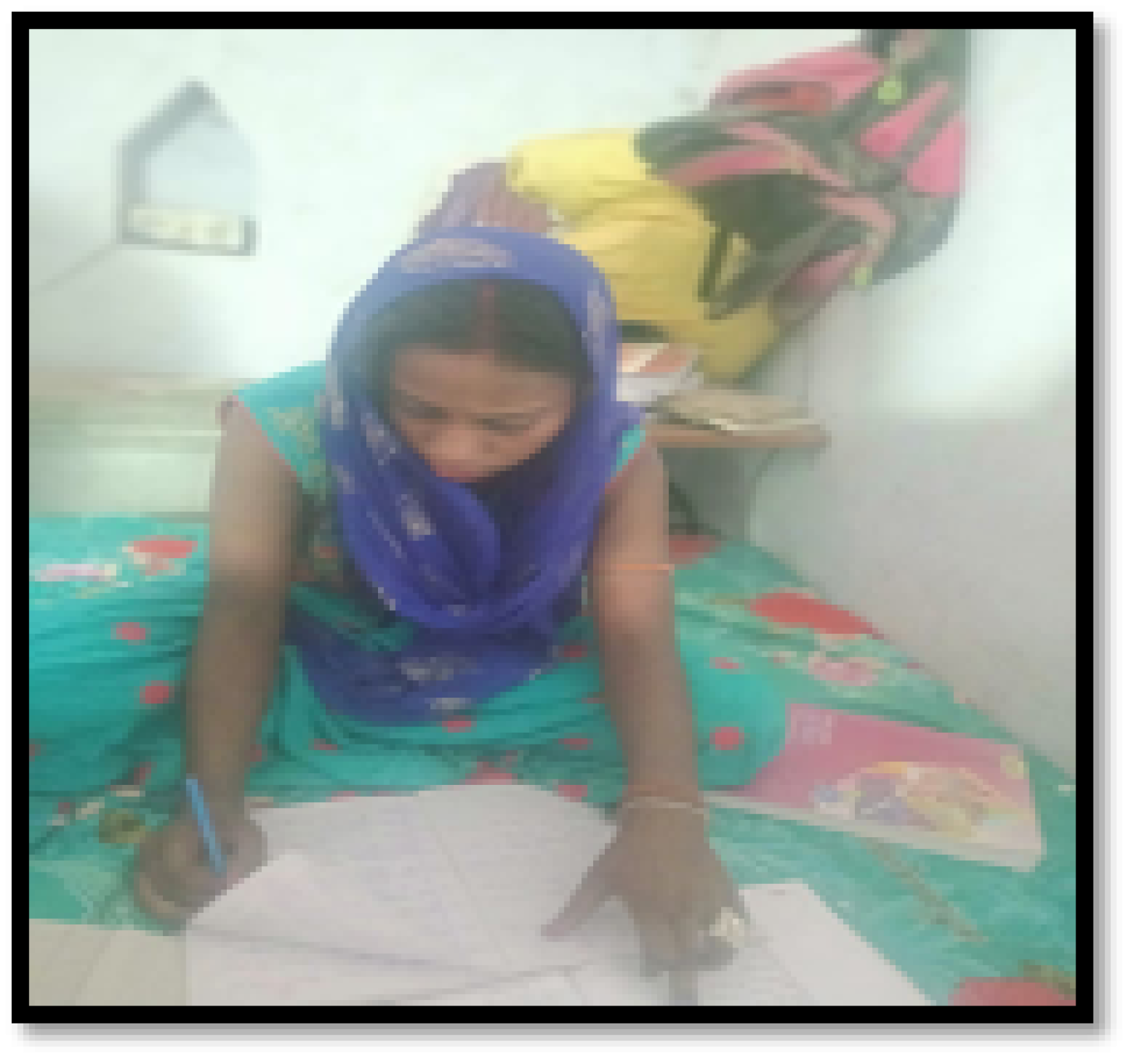
Khusbu belongs to the SC(Schedule Caste) category and opportunities are relatively limited for her. Her father works as a community mobiliser and her mother takes care of the home. She is the eldest of the siblings, which means that she has to bear most of the responsibilities in the household – from taking care of the young ones to helping her mother in the day-to-day chores.
Before the Second Chance Education program was introduced in her village by PRAN, Khusbu had practically stopped considering schooling to be an option. When the PRAN team launched the SCE program in Dohari village, they persuaded Khusbu to enrol for the NIOS program and complete her secondary and senior secondary education. Before getting enrolled, she had trouble reading books and preparing notes for subjects. But her interest and conviction got her through. She enrolled with the NIOS programme and began her education afresh. Some of the things, Khusbu likes most about this program is the hands-on approach the teachers take with their students, the freedom to choose the subjects of their liking, and the unlimited attempts to clear the exam. With hard work and dedication, she managed to involve herself actively in class and ask questions on pertinent topics.
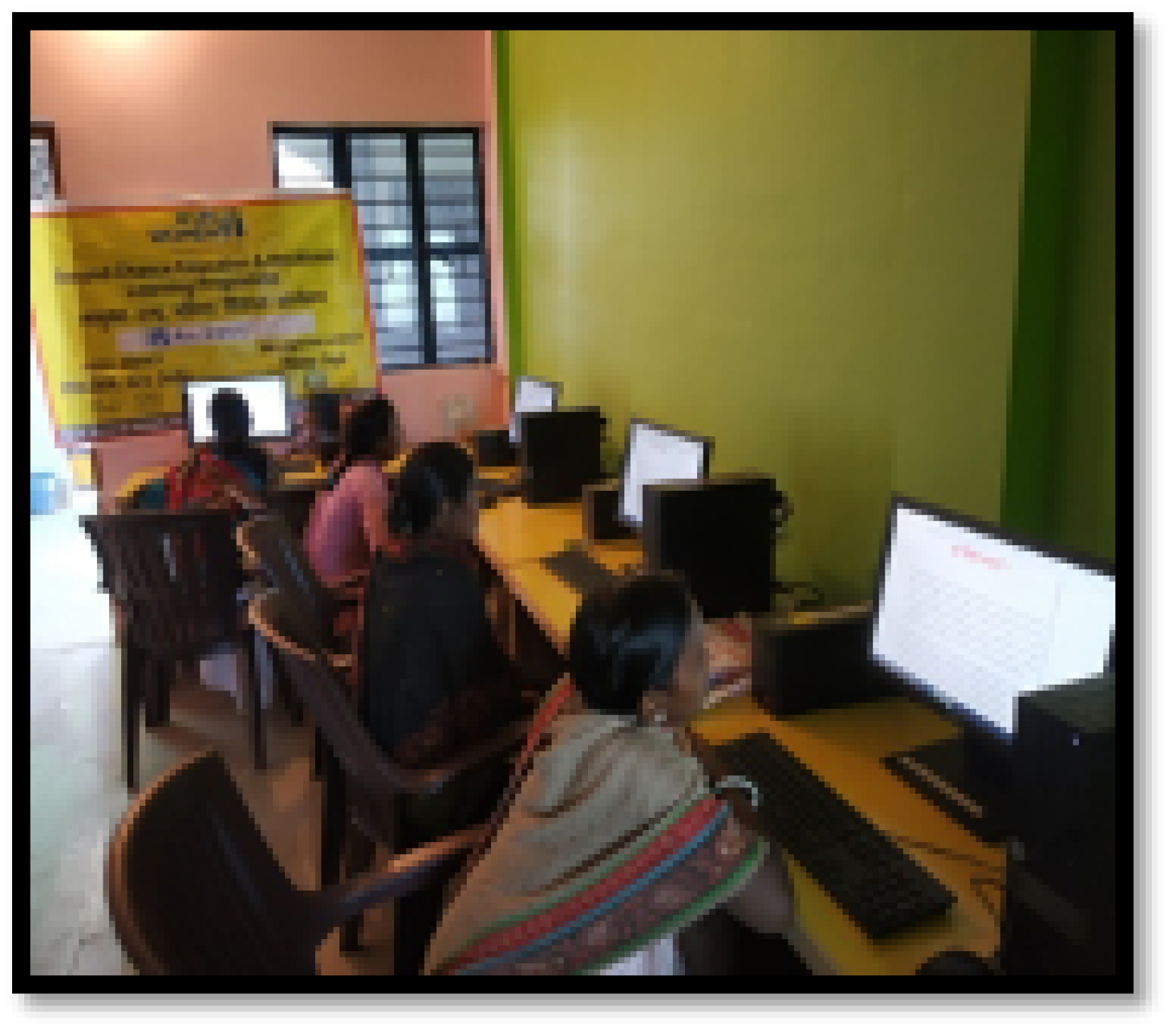
It has now been two months since Khusbu has started her classes, and the results are fantastic. Despite COVID-19 hampering classes, she has been receiving material from NIOS, which she dedicatedly studies and learns. She has gotten significantly better at her subjects, adept at reading, and proficient in making notes. Her subjects include Hindi, Social Science, and Home Sciences. She is also forming socio-political opinions. She believes; “Gender-responsive education is important because it provides one with a new way of thinking, concerning women’s rights and education”. Her journey is testament to the fact: she has gone from being unable to read coherently, to reading her entire textbook effortlessly. All because she took the first step towards the path resuming her education.
“I’ll rise above all, for my mother and myself”.. – Pramila, Jaisalmer, Rajasthan
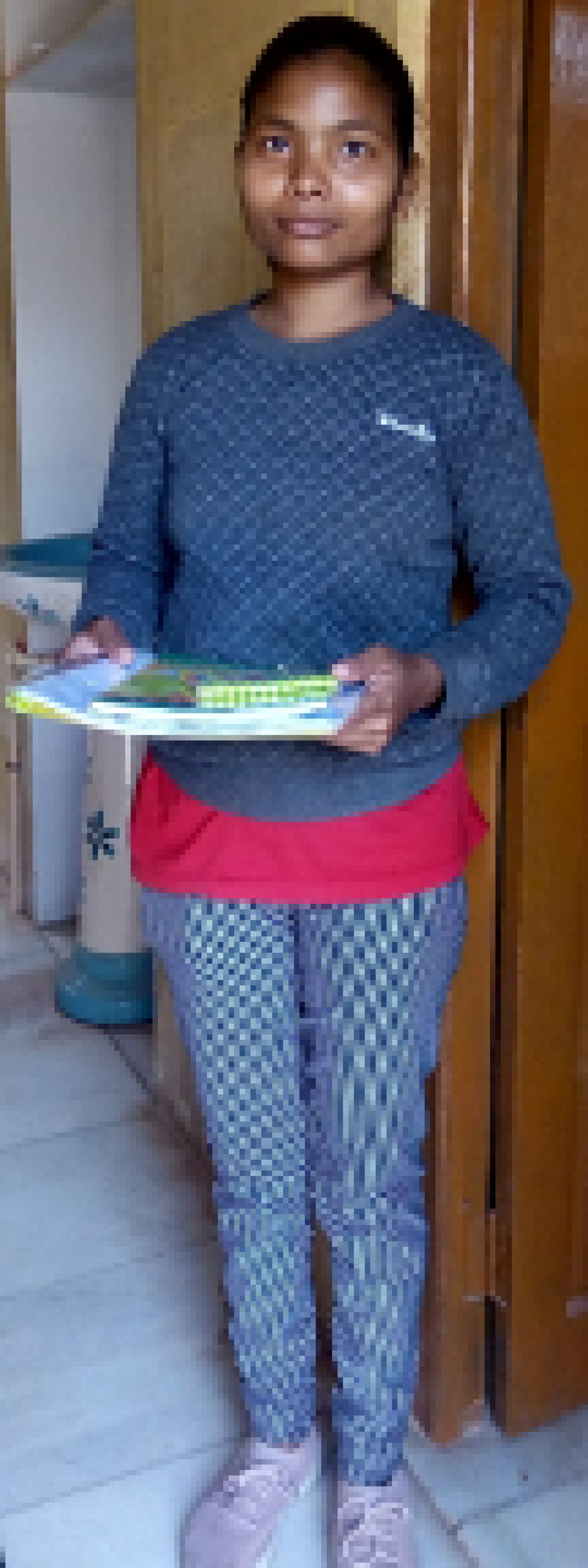
There is no obstacle big enough when one’s determination and courage persists and prevails. This is a lesson easier repeated than performed. Yashoda Sahariya of Baran district in Rajasthan is a living example of this lesson. Innumerable obstacles came in her life, but she managed to overcome each of them to achieve the goal that has always been closest to her heart: ‘Completing her Education’. Yashoda was afflicted with polio when she was 10 years old. The disease left her crippled and unable to walk. At the age of 17, she was married off to Mr Bablu Sahariya who was several years elder to her. At 28 years of age, she is the mother of two – Hemant, aged 12, and Kuldeep, aged 5. She lives in a joint family with her husband, children, and in-laws. Education has always been Yashoda’s passion. Even after marriage, she managed to remain connected with the education space to improve the lives of children.
Having completed her primary education, she managed to work in association with a local school where she taught younger students. Her income of Rs. 8500 was supplemented by her husband’s, who works as a truck driver. Life hadn’t been easy on Yashoda but she managed to persist regardless. After marriage; she persisted on educating herself. Aided by her supportive husband, she managed to finish her secondary education post marriage. She enrolled in the NIOS 12th grade twice but failed on account of Math – the subject had always been particularly difficult for her. Her confidence was subdued, but she persisted nonetheless. With the intervention of the Second Chance Program implemented by the Manjari Foundation and supported by Pradan and UN Women, she found a means to succeed in her goal.
Yashoda began attending meetings held by the Manjari Foundation. Led by Ms Sadiya Anjum, she began to be influenced by the motivational speeches and finally, ended up paying Rs. 1700 for enrolling for the NIOS program. She is currently studying Hindi, Home Science, Environment Education, Painting, and Economics. Home Science is a particular favourite of hers, one that she believes will pave the way for better opportunities in the future. Inspired by his wife's activities, Yashoda’s husband also got himself enrolled in the NIOS 10th grade program. He wants to secure a government job in the future. A single opportunity in the form of the Second Chance Education programme is leading to a complete upheaval in Yashoda’s family, as both husband and wife strive towards better opportunities and a better life for themselves and their children.
“Fighting the Odds for becoming an Entrepreneur” – Gita, Rayagada, Odisha
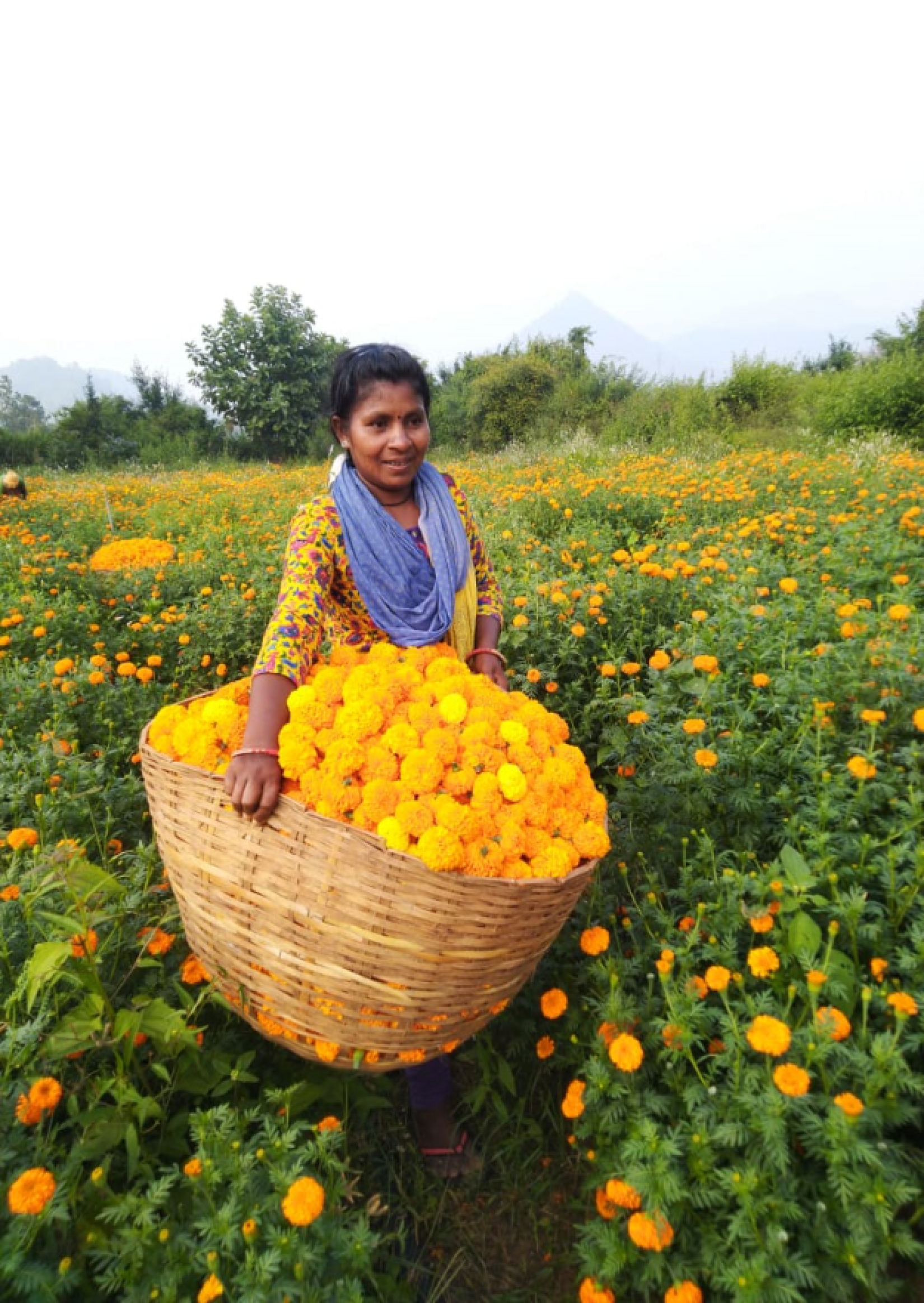
Written By: Zoya Khanday, Consultant Communications, UN Women India Under the guidance of Kanta Singh, Country Program Manager, UN Women Supported and compiled by: Sana Fatima, Consultant, Second Chance Education, UN Women India

















